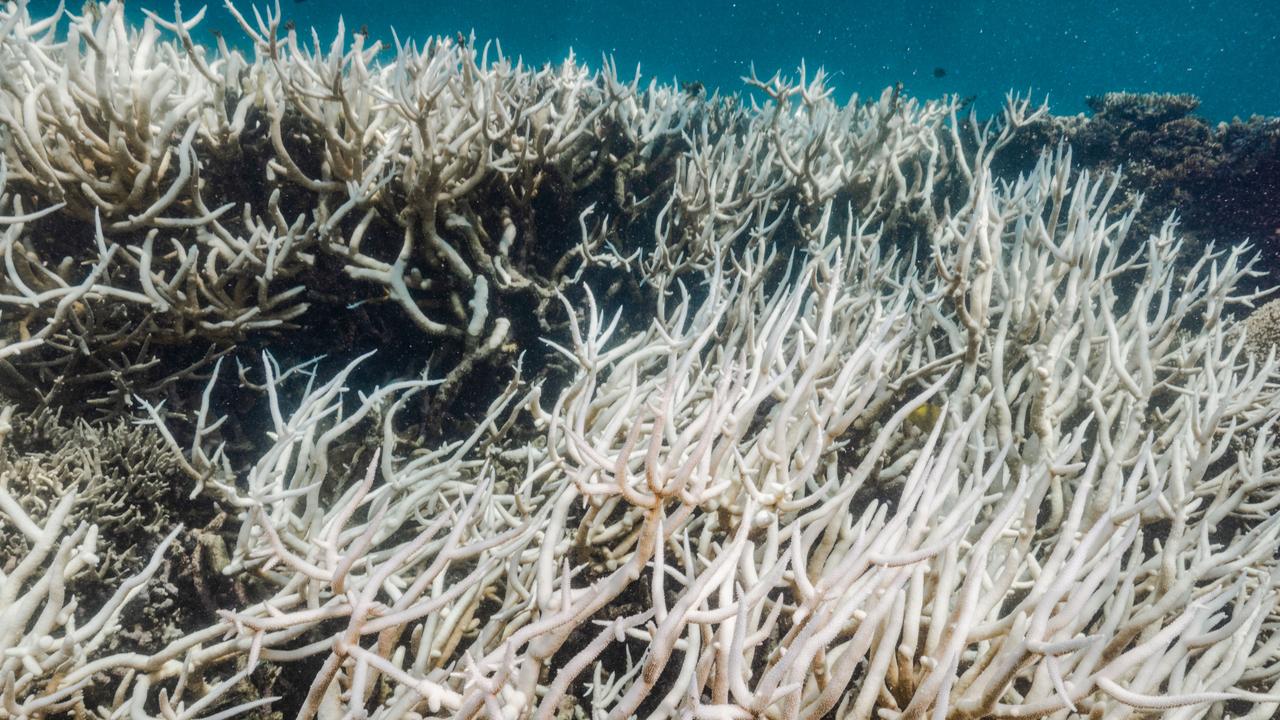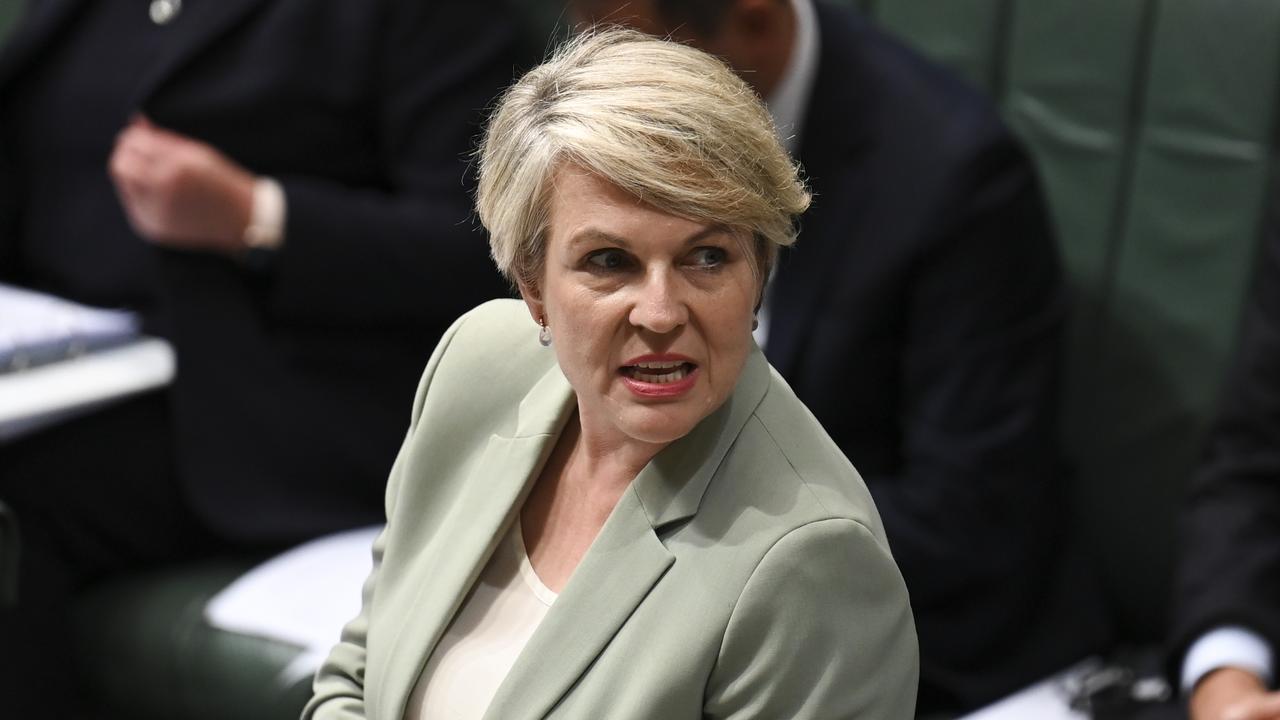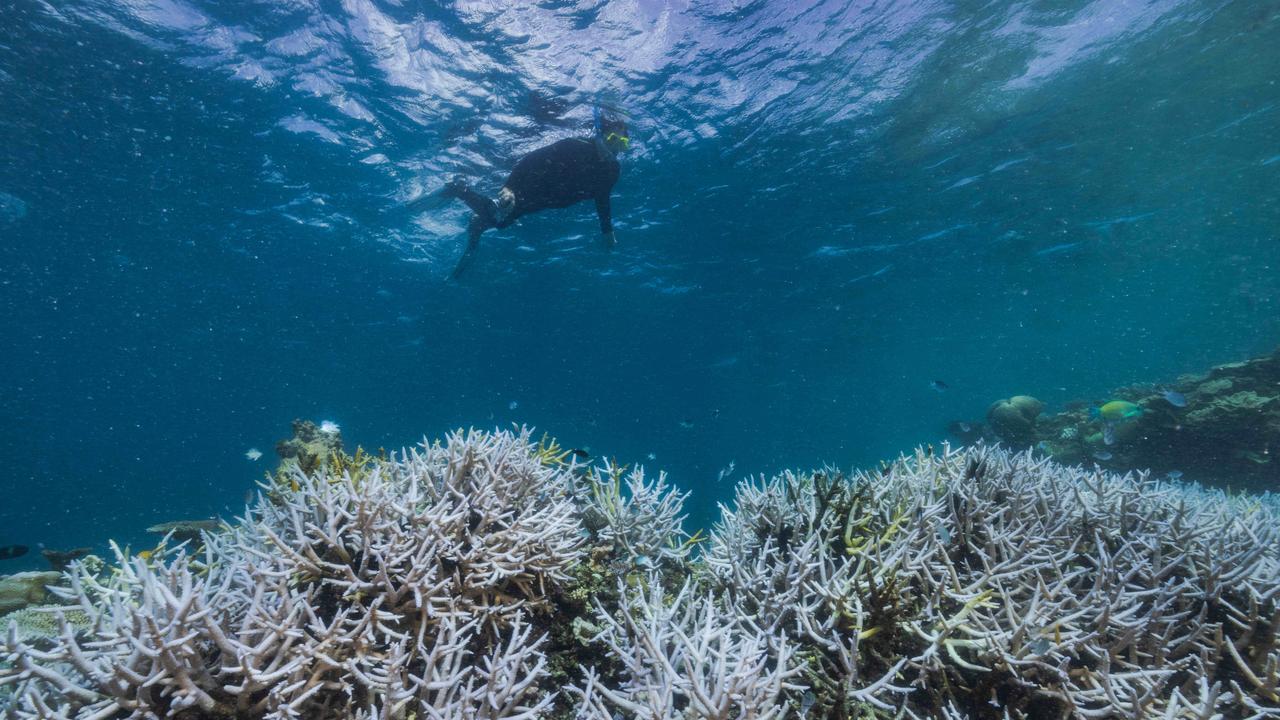‘Unprecedented’ mass coral bleaching event on Great Barrier Reef
Queensland’s iconic Great Barrier Reef has suffered one of its worse mass coral bleaching events on record, with some southern reefs now impacted for the first time following the state’s sweltering summer.
Queensland’s iconic Great Barrier Reef has suffered one of its worse mass coral bleaching events on record, with some southern reefs now impacted for the first time following the state’s sweltering summer.
The world-heritage listed Reef would now be subject to further urgent aerial surveys in the coming weeks after the Great Barrier Reef Marine Park Authority revealed the mass bleaching – described as “devastating” by experts.
Queensland has suffered through a summer of wild and extreme record-breaking weather, with rainfall, cyclones, floods and soaring temperatures across the state.
More than 300 surveys from north of Cooktown to just north of Bundaberg have confirmed the mass bleaching event was underway, with the Reef Authority saying there was “prevalent shallow water coral bleaching due to a build-up of heat stress over the summer”.
They also said the extent of the bleaching on the Reef – which supports about 64,000 jobs and is worth $6bn to the economy – was variable, and other reefs around the world were suffering bleaching due to “climate change-driven elevated ocean temperatures”.

“We are continuing to conduct in-water observations with research partners and extended observer network,” the authority said.
“This information is critical to informing Reef management, providing a greater understanding of what is happening so we can target management actions to protect the Reef and strengthen its resilience.”
Queensland Environment Minister Leanne Linard said the news was worrying.
“We’re concerned as Queenslanders, concerned about the businesses and those that carry out their business on the Reef,” she said.
“What we’re seeing here in Queensland on the Reef sadly is what we’ve seen over the past 12 months in most coral reefs around the world.
“What we know about the Reef is it is resilient, and we have seen unfortunately coral bleaching events to varying degrees almost every two years, and that is because of climate change.
“What we’re doing as a government, in conjunction with the Commonwealth Government, is about building the resilience of the Reef, and we need to continue to focus on these activities so that when these events happen, our Reef does recover.
“We also know though that it doesn’t mean that we will see mortality of coral, but we may, and that is of concern to us.”

Australian Marine Conservation Society’s Dr Lissa Schindler said the news was “devastating”, and was an unprecedented fifth mass coral bleaching event in just eight years.
“This is a huge wake-up call for Australia and the global community that we need to do much more to address climate change, which is driving the marine heatwaves that lead to coral bleaching,” she said.
“Our children and grandchildren may never experience the Reef that we know and love.”
The southern reef was of particular concern, Dr Schindler said, adding there were corals in the area which were hundreds of years old.
“These are reefs that have not been touched in previous mass bleaching events,” she said.
Federal Environment Minister Tanya Plibersek said she knew Australians would be troubled by the news.

“It’s essential we do everything we can to protect this amazing place for our kids and grandkids,” she said.
“We need to act on climate change. We need to protect our special places and the plants and animals that call them home. And that is exactly what we are doing.
“We’ve legislated to reach net zero, with a 43 per cent emissions reduction target by 2030 and committed to reaching 82 per cent renewable energy by 2030.
“And we’re investing a record $1.2 billion in the Reef including to ensure we have the best science on reef adaptation and resilience.”



